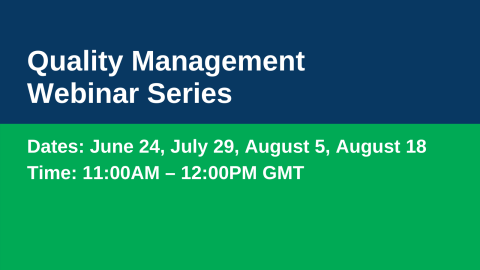Collaborative & Inclusive: How ACCA and SOCPA Are Expanding the Profession’s Contribution to the Business Ecosystem

COVID-19 Vaccine Delivery: Finances, Risks, and Innovation
2:00 PM–4:00 PM GMT / 3:00 PM–5:00 PM CEST
Event Overview:
ICGFM, the World Bank, Gavi, and the Global Fund are jointly hosting a virtual event to share information and facilitate an active discussion among public financial management professionals, and those responsible for resourcing, overseeing, and ensuring COVID-19 response and vaccine delivery.
International Federation of Accountants (IFAC) Continues Drive Against Financial Crime
The International Federation of Accountants (IFAC) welcomes the work of the World Economic Forum’s (the “Forum”) Unifying Framework, published today, for the important added visibility it provides in the fight against financial crime from a cross-sectoral perspective.
The release of the Forum’s report today is a significant step in raising awareness about the good work of gatekeepers – individuals including accountants, bankers and lawyers – who work to prevent or interrupt financial crime, and particularly money laundering, illicit financial flows, and corruption. By endorsing this work, IFAC hopes that we can inspire other gatekeeper professions to adopt ethical frameworks on par with the International Ethics Standards Board for Accountants’ (IESBA’s) International Code of Ethics for Professional Accountants (the Code), the gold standard for ethical behavior.
Kevin Dancey, CEO of IFAC, said, “This new report by the Forum is broadly aligned with the long-standing principles of the Code, which governs the conduct of approximately 3 million professional accountants, defined as those who are members of one of the 180 professional accountancy organizations (PAOs) around the world recognized by IFAC. We encourage other gatekeeper professions across all sectors to look to the Code as a model.”
Endorses the World Economic Forum’s Unifying Framework
CFOs' Essential Role in Promoting Employee Mental Health
For professional accountants, mental health issues heighten the risk of not identifying errors in financial reports or spotting indicators of fraud. In this recent article, Russell Guthrie, CFO of the International Federation of Accountants (IFAC) expressed this opinion.
Don’t Miss the Upcoming Quality Management Webinar Series

Audit Firm Culture: Challenge. Trust. Transformation.
The Financial Reporting Council (FRC) has announced it will be holding an international conference in June entitled Audit Firm Culture: Challenge. Trust. Transformation. The conference will explore the link between audit firm culture and audit quality with the objective of accelerating the pace of change for cultural transformation in the audit profession.
Carbon Quotient: Accounting for Net Zero

Empowering CFOs to Drive Climate Action

Professional Accountants Leading Reporting and Assurance on Sustainability

